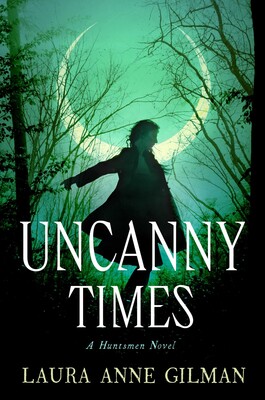I planned to blog on my yesterday, but the world caught up with me. It’s still Monday in the US, however, so I thought I’d talk on what caught up with me and prevented me writing on my Monday. Not everything. Honestly, you don’t need the details of a migraine and some of the more interesting (and quite unsavoury) symptoms. Just let me say that for some of us, migraines affect the stomach as much as the head and that there were many things I was unable to do yesterday.
Three big things made my Monday unforgettable. One of them would have been quite enough. Let me talk about them in chronological order.
First, a very fine meeting. I chatted with the actor doing my audiobooks. I didn’t know enough about audiobooks (and was too ill) for the actor who read Langue[dot]doc 1305. I heard the first fifteen minutes and asked if he had any questions and we had an email exchange and that was about it. I will always regret not being there for an actor who was new to this work.
This time, because the new reader-of-my-books is American and my accents are seldom US, and she’s reading the Australian settings and locals know best how to pronounce words like Garema, Manuka and even Canberra, we’re talking about my books more.
It was a wonderful meeting. It took a big chunk of my work day, but was so worth it. She had sorted out how to say Manuka and Canberra earlier, so yesterday was only Garema, which means, mostly, we talked about accent. She’s not reading my novels in an Australian accent, but a more British one.
Australian accents are kinda impossible for people from the US and not that easy for most other actors outside Australia and New Zealand. Some sounds, however, are closer to US English than to the Cockney that Australian sounds like to many, and we talked those through. Australians pronounce ‘h’, for instance.
It was a fascinating conversation. I now know a lot more about why our accent is so imponderable for so many US listeners. I also know now that my English is, in some vowel sounds, halfway between the US and the UK.
The second thing was learning of the death of Maureen Kinkaid Speller. This is a terrible thing. We needed at least two more decades with her in the midst of fandom, educating us, supporting us, and telling us of the adventures of her beautiful cats. In 2018 we talked about not being able to see each other. I’d planned to spend as much time with her as she could stomach, talking about books and both of our research. Those visits all were postponed by COVID. I have a hole in my life where those conversations should have been and a gaping maw in the place Maureen herself inhabited.
I’m not alone in this. I suspect Maureen never knew just how important she was to so many people, even those like me who she only saw from time to time.
I knew her online a little and then discovered the full wonder of her mind and her sense of humour when she interviewed me (about Life Through Cellophane/Ms Cellophane) for London fandom over a decade ago. Her kindness that day, when I’d just got off the plane from Australia and was entirely jetlagged and had no idea I was ill and… her kindness and her insights into my work meant a lot to me, and capacity to get me through that interview and make it a good one despite my condition was amazing. That was the day I planned many more long conversations.
Yesterday I discovered that I’m not the only person who found her a quiet pillar of light. So many of us…
The other death the whole world has known about for a little while, but the funeral is now done. Much pomp and ceremony. Many hours of TV. I only watched some of it, because of the migraine and because of the time – I wasn’t going to stay awake all night, even for something this historically important.
The thing is…Australia is now ruled by a king. Furthermore, that same king was the man we asked politely not to be our Governor-General decades ago. Australia is, to be blunt, both respectful and also a bit sarcastic about our head of state and about the head of the most important religious denomination here.
This raises so many questions about what kind of democracy we have and want. The last elections showed what kind we want, but the role of the Governor-General was questioned this month when Hurley did political things that he was not supposed to. He asked for (and got) $18 million to establish a leadership institute. That money has now been rescinded, but it leaves the question that we all felt in the 70s… if the Governor-General plays politics, wouldn’t we rather have a president than a queen (now a king)?
The monarchy has played a very quiet, gentle role in most of Australia’s independent history, and every time a Governor-General tries to change that, we get angsty. David Hurley established his little leadership scheme and distressed many of us. John Kerr dismissed the prime minister and distressed more of us. While most people still voted for the opposition, this didn’t mean they were happy with Kerr. He couldn’t be seen in public for most of the rest of his life without incurring some really nasty comments and at least once, thrown tomatoes.
There is a third death, but it was all over last week. The mention of Whitlam’s dismissal and John Kerr reminds me of it. Sir David Smith, the man who kept the Governor-Generalship going, despite Kerr. He was secretary to the Governor-General, and bore brutal public nicknames while still maintaining friendships with all parties. He quietly kept Australia going through that crisis in the 70s. Sir David was such a good man and so important in so many ways, that an ex-Prime Minister came to his private memorial service.
I knew him, for a number of reasons. In fact, I met Whitlam through him. Ask me and I’ll tell you that story one day. It involves a pink shirt.
So much of the critical aspects of Australian politics happen quietly. We are more like Britain than the US. When I was in training to be a policy wonk, we were given “Yes, Minister” as training material. The nature of most things political, especially these two important deaths, is the flavour of the week and yes, Maureen and I have spoken politics and I wanted to talk politics with her some more. More than any of the others we’ve lost, I shall miss Maureen Kinkaid Speller.



 In 1990, when I was 4+ months pregnant with my older daughter, my husband and I went to Disney World. Our reasoning was that this might be our last opportunity to act like the irresponsible kids we were (even in our 30s) rather than the responsible parental figures we were about to become. This showed how much we knew about parenthood, but it was still a good trip. While we were there, we learned that there was going to be a shuttle launch from the Kennedy Space Center at Oh-God-Too-Early AM the next day, and immediately decided we had to drive there from Orlando and see the launch.
In 1990, when I was 4+ months pregnant with my older daughter, my husband and I went to Disney World. Our reasoning was that this might be our last opportunity to act like the irresponsible kids we were (even in our 30s) rather than the responsible parental figures we were about to become. This showed how much we knew about parenthood, but it was still a good trip. While we were there, we learned that there was going to be a shuttle launch from the Kennedy Space Center at Oh-God-Too-Early AM the next day, and immediately decided we had to drive there from Orlando and see the launch. I was ten when A Hard Day’s Night came out. It played for about a year at the Village Cinema, four blocks from my house in Greenwich Village. The Village Cinema was a little art house, and while my mother was not against dropping the kids at the movies (I was 10, my brother was 8) especially during the summer when it was hot and there was air conditioning, she preferred to do it at the Waverly or the Loews Sheraton (both larger, with a larger, more supervisory staff to make sure we wouldn’t be spirited away). I think she found the Village Cinema–what was called an “art house” in those days, a little skeevy. In any case, neither my mother nor my father was enthused by the idea of taking us themselves and spending two hours watching what they anticipated would be a standard teen-pop-star movie.
I was ten when A Hard Day’s Night came out. It played for about a year at the Village Cinema, four blocks from my house in Greenwich Village. The Village Cinema was a little art house, and while my mother was not against dropping the kids at the movies (I was 10, my brother was 8) especially during the summer when it was hot and there was air conditioning, she preferred to do it at the Waverly or the Loews Sheraton (both larger, with a larger, more supervisory staff to make sure we wouldn’t be spirited away). I think she found the Village Cinema–what was called an “art house” in those days, a little skeevy. In any case, neither my mother nor my father was enthused by the idea of taking us themselves and spending two hours watching what they anticipated would be a standard teen-pop-star movie.
 Jupiter and Saturn, but Voyager 2 continued on to Uranus and Neptune. They’re both now outside the solar system, sending back data about the regions of space they’re exploring.
Jupiter and Saturn, but Voyager 2 continued on to Uranus and Neptune. They’re both now outside the solar system, sending back data about the regions of space they’re exploring.